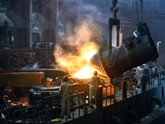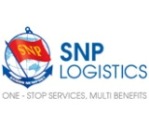In May, Trump announced a 25-percent tariff on imported steel, and 10 percent on aluminum, from Canada, Mexico and the European Union. Not surprisingly, the move elicited an outcry from the nation’s trading partners, who threatened to retaliate with heavy tariffs of their own against a range of American products.
In July, Trump backed away from the steel and aluminum tariffs aimed at the E.U., even as he continued to berate the region for its allegedly unfair trade practices against U.S. interests, particularly in the area of imported cars, trucks and auto parts.
The President followed up his tirade against the western powers by approving $50bn worth of tariffs on goods from China, including automobiles, industrial machinery, information technology, robotics and aerospace products.
All of which was calculated to grant relief to U.S. metals producers who have supposedly suffered greatly over the past few decades at the hands of cheap imports. What the President failed to take into account, however, was the ripple effect that his actions will come to have on American manufacturers and sellers throughout the supply chain – not to mention consumers, who will bear the burden of import tariffs in the form of higher prices.
Start with the reality that American factories can’t just step in and make up for a reduced flow of imported materials.
“There’s not enough steel if all consumers wanted to purchase from U.S. sources,” says Matt Stanfield, senior director in the Corporate Performance Improvement group of Alvarez & Marsal. “In the case of these materials, you can’t onshore everything even if you wanted to.” Even if domestic production manages to gear up, lead times are sure to lengthen, resulting in further delays and higher costs down the chain.
At the same time, manufacturers caught short by the announcements will begin to experiment with other types of materials for their products, further depressing demand for steel and aluminum and offsetting at least some of the benefits to that industry that were supposed to result from the President’s action.
With all of their complexities and multiple partners, global supply chains can’t just turn on a dime. Caught by surprise by the tariffs, producers find themselves without fallback plans in place. Their scramble for alternative suppliers is sure to boost costs, so that higher prices “almost immediately get baked into the process,” says Geoff Pollak, managing director of the Alvarez & Marsal corporate performance group.
As Pollak points out, manufacturers don’t just have to scrutinize their relationships with immediate suppliers. They need to look at multiple tiers up the chain, all the way back to raw materials, as they struggle to keep costs down while ensuring a steady flow of materials.
The exercise is not unlike that which followed major natural disasters of the past decade, including the Japan earthquake and tsunami, and Thailand floods. Original equipment manufacturers, some for the first time, were forced to take a critical look at the geographic spread of their supply bases, and diversify accordingly.
Still, no amount of reconfiguration can completely stave off the additional costs that come from a bruising global trade war. The impact is felt at every step of the supply chain – for any product that incorporates steel, aluminum or other type of raw material targeted by President Trump.
If there’s a silver lining to the crisis, it’s in the form of notice to companies that they need to adopt more effective supplier risk-management strategies. Some are well along that path, having sought to ensure ethical labor practices at factories in China and other locations overseas. But how many have bothered to craft similar plans for production in Canada and Mexico? With all of the uncertainties surrounding renegotiation of the North American Free Trade Agreement, again triggered by President Trump’s attacks on longstanding U.S. trade policy, a higher level of awareness and preparation close to home becomes essential.
Pollak urges U.S. manufacturers to take action on a couple of fronts, “sooner rather than later.” First, they need to rapidly acquire a map of all suppliers, specifying the commodities that are embedded within each of their products, and the corresponding countries of origin.
Second, companies need to do a better job of supplier engagement. A crisis is not the time to be begging an unfamiliar vendor for production capacity. The message to suppliers, in Pollak’s words: “We want to work with you and find a relationship that doesn’t cost us the full weight of what the current tariff pricing would suggest.”
Finally, companies need to take a fresh look at their global manufacturing footprint, balancing the advantages of overseas production with the need for domestic tooling and equipment. The full range of tax rules and tariffs should be taken into consideration.
One hopes that President Trump will step back from his belligerent stance on trade, having realized its long-term negative implications for suppliers and producers throughout the chain. At the same time, companies need to wake up to the need to prepare for future disruptions.
“If you’re just getting started now,” Pollak says, “it’s not going to be easy.”













